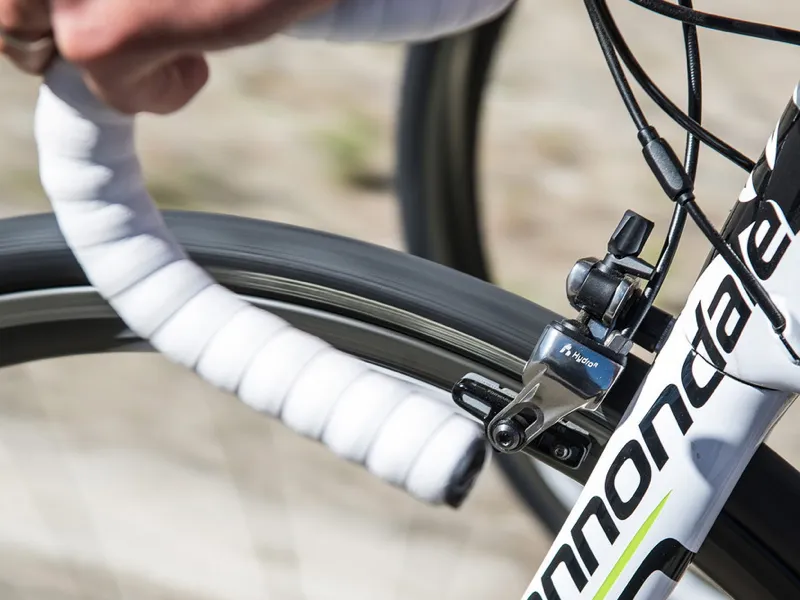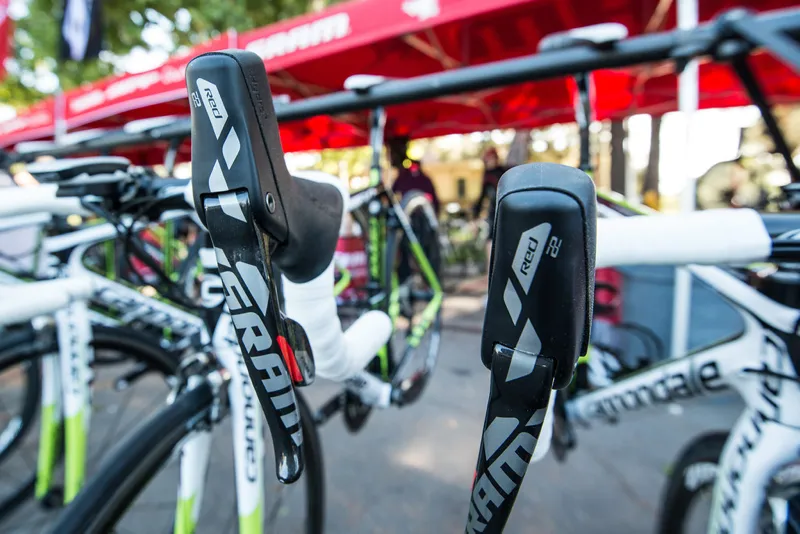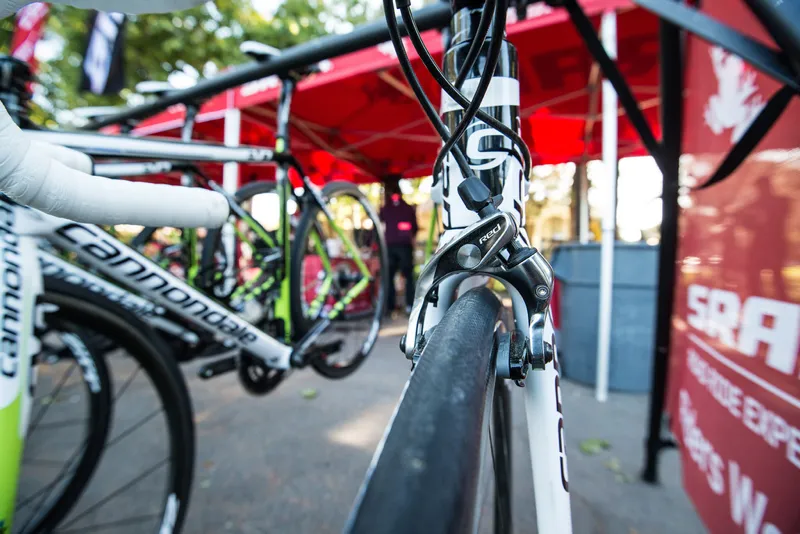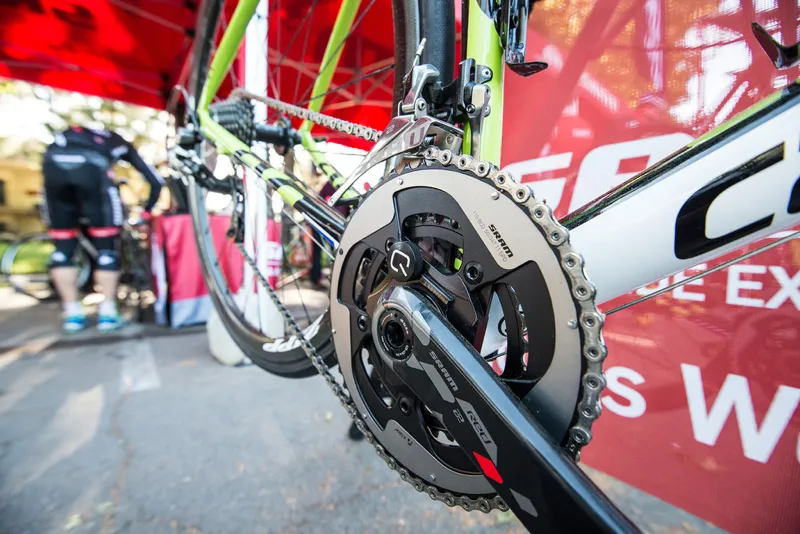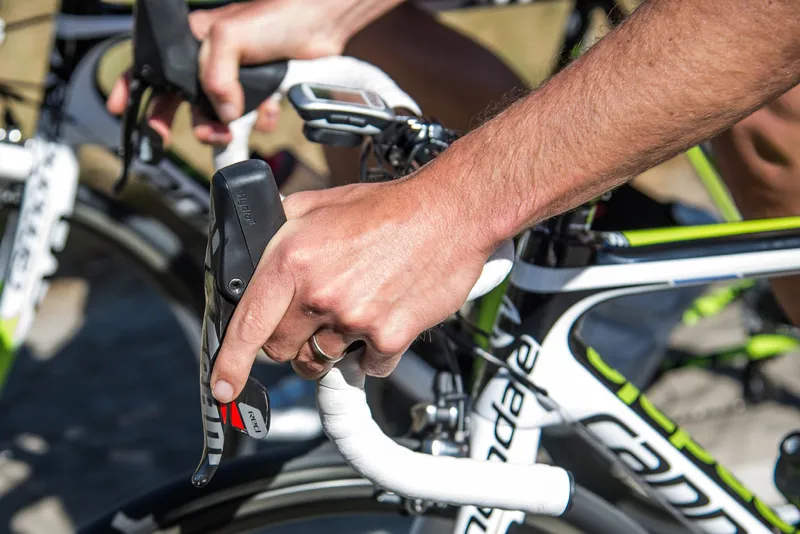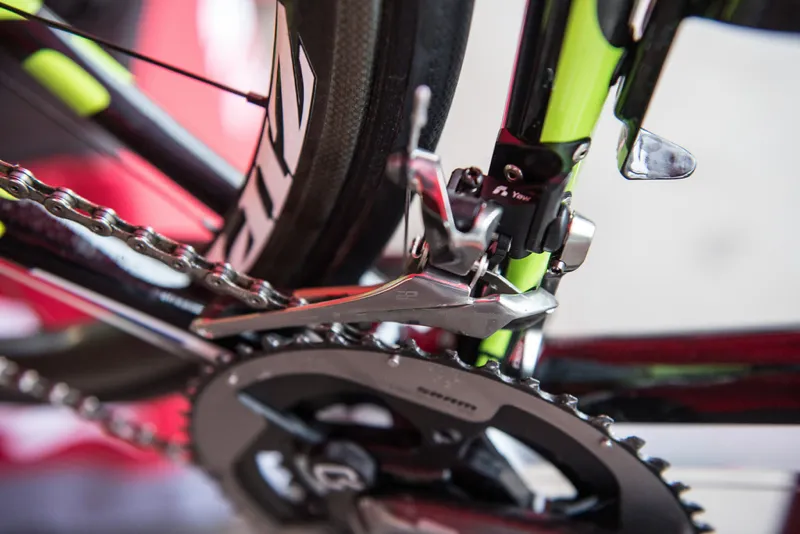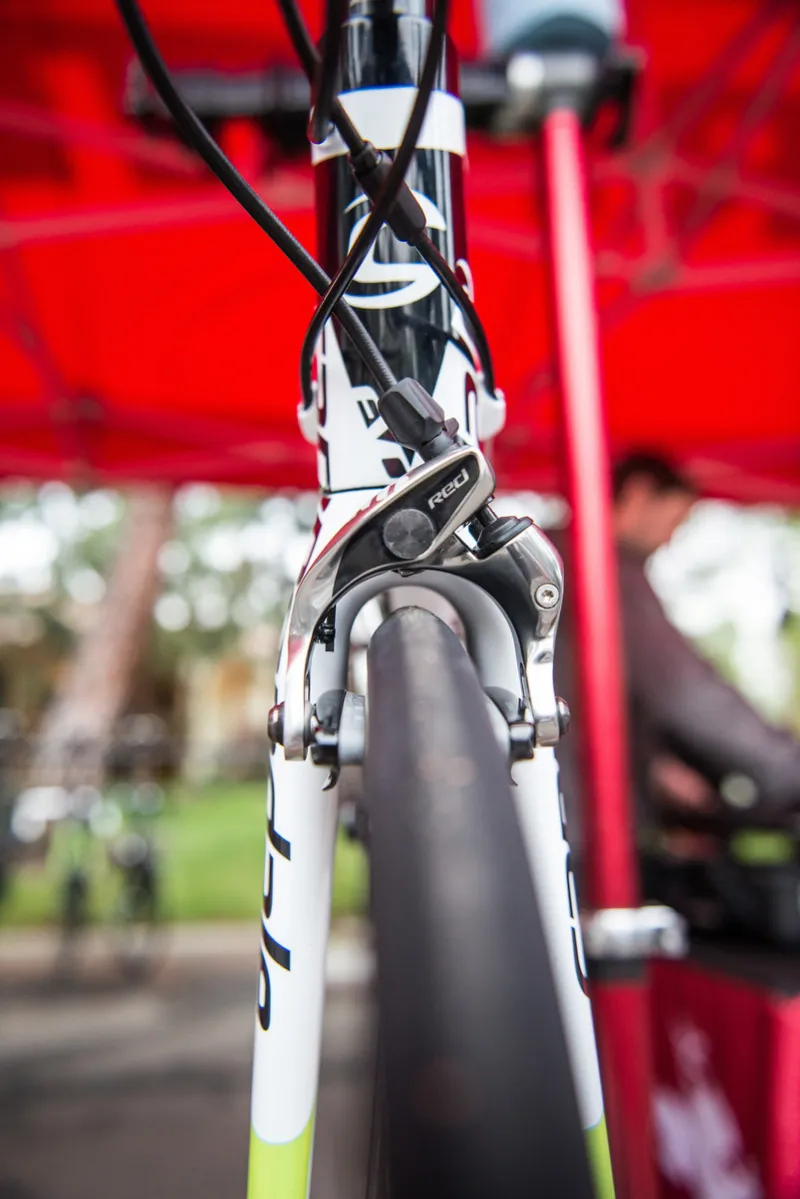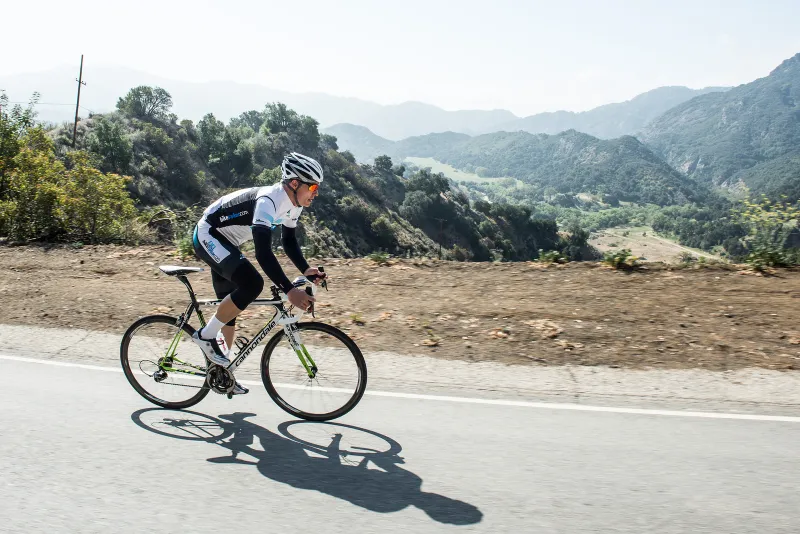The SRAM Red 22 road group has three brake options: mechanical, hydraulic disc and hydraulic rim. We rode all three 11-speed options over a few days just north of Los Angeles. We'll focus here on the Hydro R hydraulic rim configuration which weighs in at 1995g – you can also check out our reviews of the hydraulic disc and mechanical versions.
Compared to the SRAM Red 2012 group, there are two major changes with Red 22: an 11-speed cassette and optional hydraulic shift levers and calipers. While the derailleurs, cranks and chain have been calibrated for 11-speed and given a cosmetic lift, the fundamental designs are the same (though Red 22 parts are not backwards-compatible).
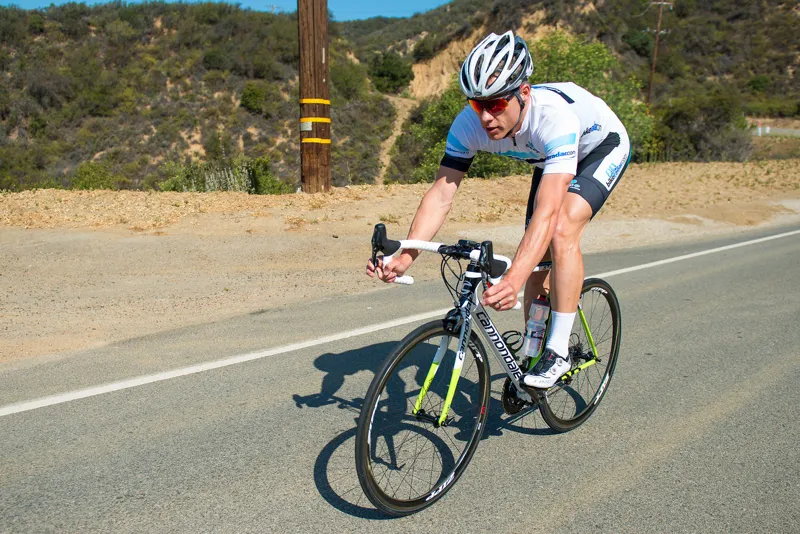
Little lever force is needed for quick, well-modulated stops
Related reading
- SRAM Red 22 11-speed hydraulic, mechanical group: Full details
- SRAM Red 22 groupset: First ride review
- SRAM Red 22 Hydraulic Disc groupset: First ride review
- Hydraulic road brakes: What's the point?
- UCI open-minded about disc brakes for pro peloton
Hydro R brakes: better braking means faster descending
We tested Red 22 with Hydro R rim brakes on a Cannondale SuperSix Evo shod with Zipp’s wide, all-carbon 202’s on a test route that included a super-twisty, hairpin-strewn, 1,800ft descent through Malibu Creek State Park.
Initial impressions before the descent were good; it feels like a very well sorted mechanical system in normal conditions. If anything, the action feels lighter and easier to actuate than a cable system. The integrated barrel adjuster atop the neatly styled brake offers a huge amount of adjustment, making it simple to have minimal pre-movement before the brake starts to act, or a huge amount. The function and form is familiar to anyone who has operated a cable-actuated barrel adjuster on a brake caliper, but with a larger barrel.
A look inside the Hydro R rim caliper. The quick release sits underneath the barrel adjuster
It’s when the road starts to fall, and the speed starts to rise that the HRR (Hydraulic Road Rim) really starts to impress. With the lightest of touches, a single finger is more than enough to scrub masses of speed. As our confidence grew we found ourselves leaving it later and later to slow our velocity on entry to a corner and make significant improvements in overall speed. For example, the previous day's ride on mechanical brakes gave a max speed on the same descent of 42.8mph. On the hydraulic set-up we clocked 47.8mph.
Plenty of criticism has been leveled at the distinct, tall-block shape of the Hydro R levers. Whilst we aren’t enamoured by the look, we liked the increased height especially when holding the hoods, which are otherwise the same shape as the mechnical levers. On the climbs it’s almost like having something to push against and the increased contact area is welcome, too.
Compared to a standard brake system, the HRR is hugely impressive.
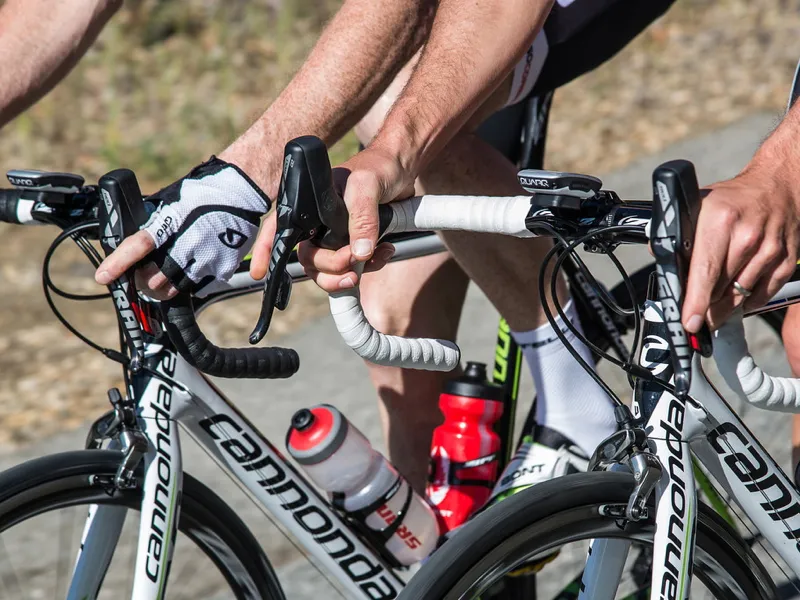
The Hydro R levers' hydraulic cylinder necessitate the tall profile
Red 22 derailleurs, cassettes and cranks: more room for chain line cross
SRAM is quick to describe the new standard as 22-speed and not an 11. It’s a marketing exercise to push the message that SRAM's unique Yaw front derailleur allows for a highly crossed chain line with the minimum of chatter or fuss. Although you can do this it doesn't mean you should, as putting more stress on the chain via an extreme chain cross (e.g. 39x11 or 53x28) can increase wear and reduce efficiency.
The extra sprocket on the rear cassette is a well-chosen addition, on the 11-25, 11-26 and 11-28 it’s a 16 sitting in the obvious gap between 15/17, adding a much smoother mid-range transition between power gears and the ascending end of the block. The wider cassette complies with the Shimano 11-speed standard's increased width, and uses a narrower-than-10 speed chain.
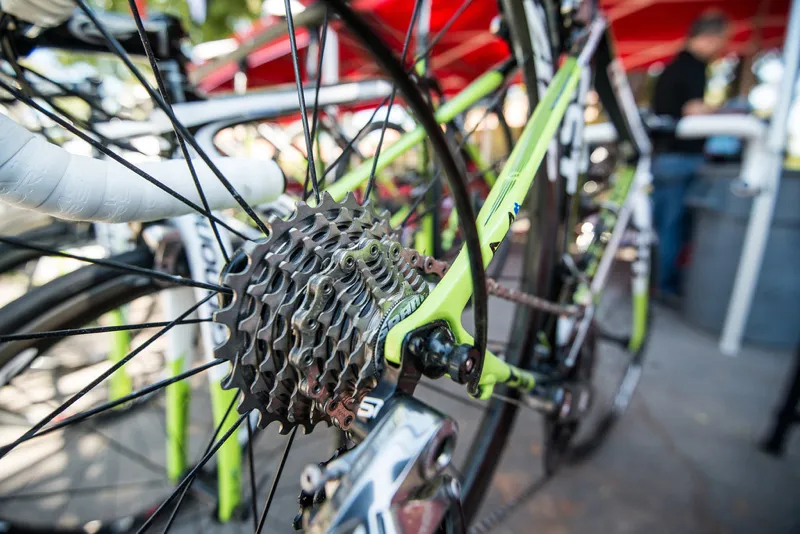
An added 16-tooth cog brings the rear to 11 options
Out on the road it still retains the same quiet, smooth operation as the 10-speed Red 2012. Snappy shifts and superb ergonomics rule the day and of course SRAM’s impressively low weight figures – 280g for the shifters, 145g for the rear derailleur, and 69g for the front.
SRAM have also added another crucial chainring option in the form of a 52/36, which in our opinion is pretty much the best all-round combo. With 53/39, 50/34 and the ’cross-friendly 46/36 — each of which come on in standard or Quarq power meter cranks from 162.5mm to 177.5mm, it’s a comprehensive group.
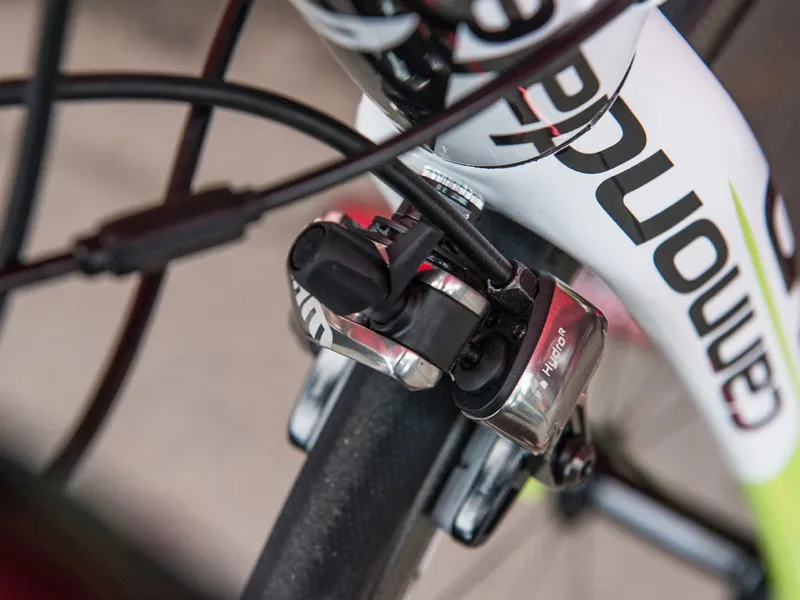
The Hydro R rim calipers work on standard wheels and frames
Rim brake highs: Adjustability is top notch; light action is metered perfectly with impressively powerful performance
Rim brake lows: Fully integrated system means a much taller shifter unit, which isn’t the most visually appealing
